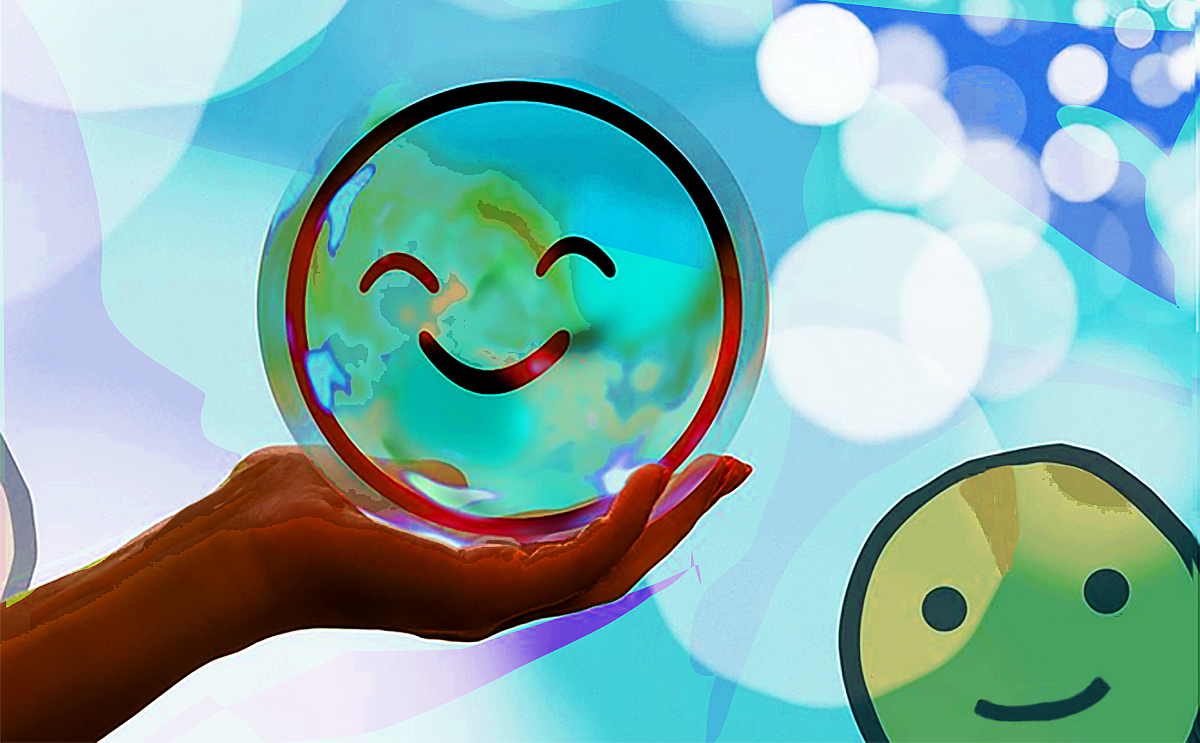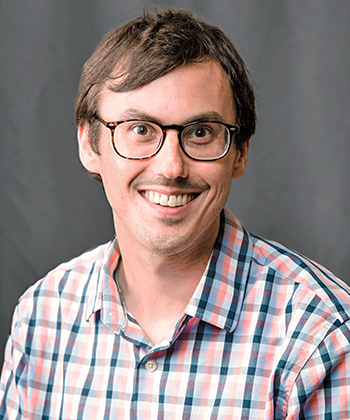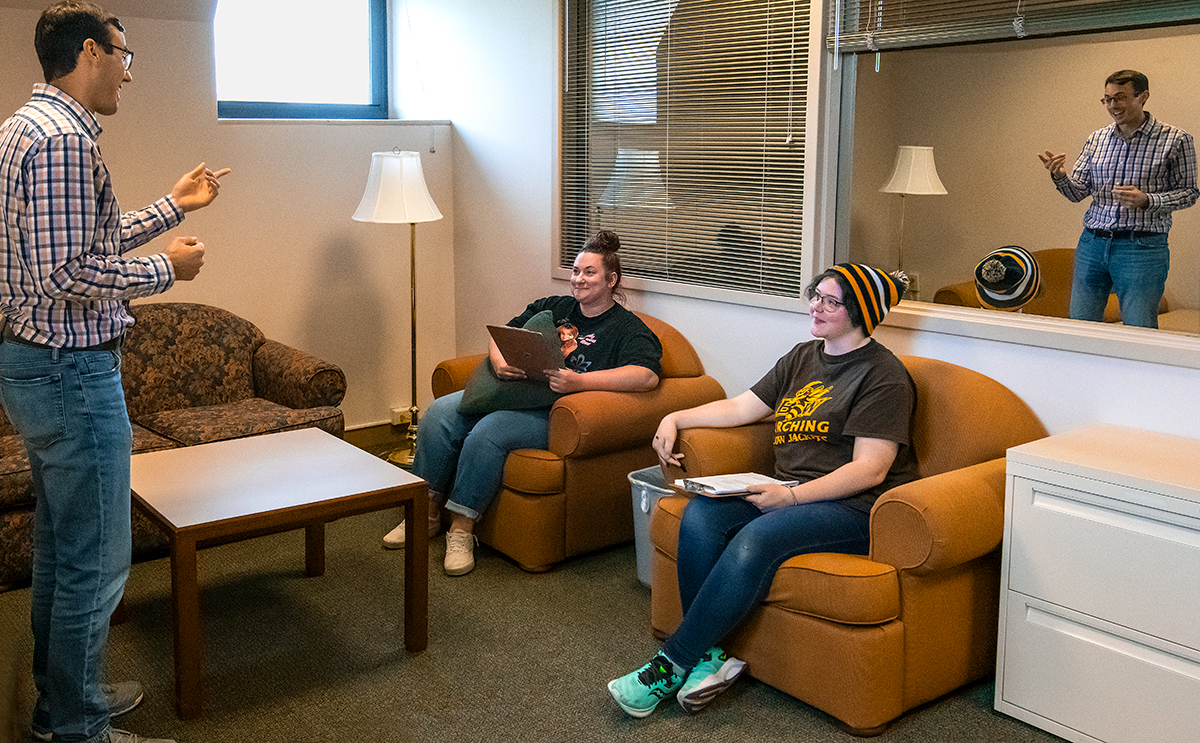Break a sweat. Bite into a juicy Honeycrisp apple. Take 10 to replenish your zen. Sure, your body can benefit. But so can your mental health, believes Dr. David Disabato, who is researching how health behavior can boost positive emotions.

A second-year professor at BW, Disabato is helping expand the psychology department’s role in the health sciences. He teaches courses in health psychology and is the director of BW’s new Health and Well-being Lab, which centers on motivating the health behaviors of people to improve their well-being and prevent chronic illness.
According to Disabato, the focus of the lab will be to study the ways happiness can be maintained in the face of chronic illness. He and his research team of students will study psychopathology — such as depression and anxiety — as a form of chronic illness. Their work will center on why some individuals with psychopathology flourish in the midst of symptoms while others struggle to get by.

The research is an extension of Disabato’s graduate studies, where he explored whether people with a history of psychopathology could not only be treated for their disorders but could fully recover to reach higher-than-average levels of well-being. He also looked at identifying potential ways people could fully recover from psychopathology through treatments other than psychotherapy and medication.
“I replicated prior research on an upward spiral between health behaviors — such as eating fruits and vegetables, exercising and meditating — and daily positive emotions,” explained Disabato. “I found that those types of health behaviors generated more positive emotions. Cyclically, those positive emotions then served to motivate people to engage in more health behaviors.
“Traditionally, we consider good health behaviors to be something we do to benefit our physical bodies,” he went on to say. “But those health behaviors also appear to be mental health behaviors that provide just as much benefit to our minds as our bodies."
Disabato believes his lab offers students valuable hands-on learning experiences. “I am actively publishing my work. Students can assist with background literature reviews for empirical papers. They also can test novel hypotheses related to health and well-being with data I collected during my post-doc. Motivated students can turn these projects into research posters for presentation at regional and national conferences. Moving forward, students will be able to assist with data collection and the design of new studies.
“I am excited about the psychology department’s move to the health sciences. I believe the scientific method is the best way to determine the most effective ways to help people. More and more, people are recognizing that mental health is a key part of overall health. It used to be that people heard the word health and only thought of physical health, but people now recognize health as encompassing mental health as well. My research often involves how the mind and body are related — how the body impacts the mind. It is a fascinating and growing topic that is at the forefront of wellness,” he emphasized.
